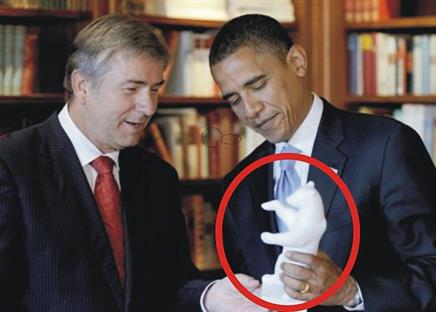


NEWS DOCUMENTS (1)



February 11: During the opening ceremony, Kosslick improvised by giving us in public the KPM porcelain bear that he had just received on stage minutes before from the Lord Mayor of Berlin. The gesture was greatly appreciated, although it was preceded by one of those bitchy remarks he has the secret for.
February 12: If we always thought history was a precise science, it was surprising how the history of the Berlinale is reinterpreted in some publications, often by the fault of ignorant editors if not by the authors themselves. To date, only Wolfgang Jacobsen's “50 years Berlinale”, published in 2000, remains the reliable and precise source for correct information.
February 13: First screening of “Spur der Bären”(“Trace of the Bears”) by Hans-Christoph Blumenberg and Alfred Holighaus (Zero Fiction Film GmbH for “Arte”) This documentary was one of the few well researched documents available this year on the history of the Berlinale, away from ego trips or polemics.
February 14: Official presentation of the book “Between us the wall - DEFA films at the Berlinale” at the Rote Rathaus, the central Town Hall, on the occasion of the 60th anniversary of Progress-Film. This book contains many recollections on the difficult East-West relations before 1989, including a shorter version of our own contribution(cf.: DEFA-DE and DEFA-FR).
February 15: We were invited to the official Berlinale anniversary dinner at the Kaisersaal. Many former jurors were present. At our table, on our right the brilliant author and script writer Wolfgang Kohlhaase, on our left Fassbinder's actress Hanna Schygulla.
February 19: Low key “Gay Teddy Bear” ceremony. The name of Manfred Salzgeber, the true soul of the event, had totally disappeared from the map. Never once was his name mentioned. As for the “Arte” transmission, the only moving moment of the ceremony – the tribute of Ingrid Caven to Werner Schroeter, was obliterated from the broadcast.
February 20: While the jury did apparently a decent job and the foreign press remained friendly, the German press took stock of the event with some rather negative assessments. From Jan Schulz-Ojala (Tagesspiegel), Daniel Kothenschulte (Franfurter Rundschau), Susan Vahabzadeh (Sueddeutsche Zeitung) to Andreas Borcholte (Spiegel), all underline the overfilling of screenings and sections and the weakness of the competition selection.
Page 1 of 2
The palm of critics goes to Michael Althen (FAZ) who wrote: “With this year's competition program, the Berlinale has abandoned competing with Cannes or Venice and joined the league of festivals such as Locarno or San Sebastian”. Also no trace on any major Studio films was to be found in this year's program.
If on our side we refrained from any criticism, having headed the event for 22 years, we remain at a loss to understand where Dieter Kosslick is targeting in today's media environment and changing film production and distribution pattern. We also question his motives in suppressing any German language festival daily or abolishing the press boxes, thus rending even more difficult communication among the participants. One wonders if a record public participation (300'000 tickets sold) and a massive film offer (some 400 titles) is to become the path to the future and the only true way to evaluate the success of an event. Festivals as supermarkets, where consume is the key word, do hardly serve - in our opinion - the true love for film as an art or justify the cultural nature of the event, but we might be wrong as the young generations seem to see it in a different way. This is a festival of the Ipod era, where even a doubtful film such as “Jud Süss...” by Oskar Roehler become a banal product drowned in the mass and consumed without much after thoughts. To conclude we would like to quote Wolfgang Kohlhaase who observed: "In the Communist State we had censorship, now we have sponsorship. I wonder what is worse."

2010
Chronicle of our visit
to the 60th Berlinale
Massive distribution of the KPM porcelain bear by the Lord Mayor of Berlin?
He received one too (July 2008)!







